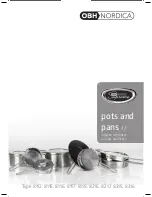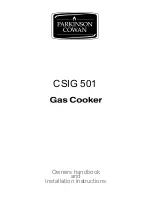
SAFETY
Do Not
•
Never put metal cooking utensils,
cutlery, knives or other metal objects
on the hob. They could become hot
if they are near a cooking area which
is in use.
•
Never leave pans overhanging the
edge of the hob. The surface of the
hob is smooth. If pans are knocked
they may move on the hob top.
•
If the appliance has solidplate ele-
ments, never leave pan lids or deco-
rative covers on top of the elements
as any trapped moisture will lead to
corrosion.
•
Never stare at the halogen elements
(if fitted). This may impair your vi
-
sion.
•
Never leave aluminium foil on the
hob top, it reflects heat back into
the element which leads to damage.
Never heat up a sealed tin of food on
the hob, as it may explode.
FIRE SAFETY ADVICE
Most kitchen fires occur when people are
distracted or leave things unattended, so
remember:
If you’re called away from the cooker - by
the phone or someone at the door, either
take pans off the heat, or switch off your
hob.
Don’t let yourself be distracted while
cooking.
If you do have a fire in the kitchen, don’t
take any risks - get everyone out of your
home and call the Fire Brigade.
If a pan catches fire:
•
Do not move it - it is likely to be
extremely hot.
•
Turn off the heat if it’s safe to do so
- but never lean over a pan to reach
the controls.
• If you have a fire blanket, put it over
the pan.
• If you have put the fire out, leave the
pan to cool completely.
Deep-fat frying presents more dan-
gers in your kitchen.
• Never fill a chip pan (or other deep-
fat fryer) more than one-third full of
oil
• Do not use a fire extinguisher on a
pan of oil - the force of the extin-
guisher can spread the fire and cre
-
ate a fireball.
If you have an electrical fire in the
kitchen:
•
Pull the plug out, or switch off the
power at the fuse box - this may be
enough to stop the fire immediately
• Smother the fire with a fire blanket,
or use a dry powder or carbon diox-
ide extinguisher
• Remember: never use water on an
electrical or cooking oil fire.







































